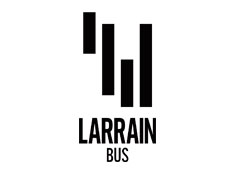
Over the last few years, the landscape of education has undergone a profound makeover. At the heart of this change is the appearance of education platforms, which have actually transformed the way we accessibility and supply learning. These systems are greater than simply electronic tools; they represent a standard shift in education and learning, driven by technological innovations and the growing need for adaptable, customized understanding experiences.
Education systems incorporate a wide variety of solutions and capabilities, from online training courses and digital class to interactive simulations and collaborative devices. They deal with students of all ages, histories, and interests, offering accessibility to a riches of understanding and resources previously inconceivable.
Recognizing Education Operatings Systems
Education and learning platforms are digital environments that promote the distribution and management of instructional content. These systems are available in numerous kinds, each developed to deal with certain academic requirements.

They can be broadly classified right into Discovering Management Solution (LMS), Substantial Open Online Courses (MOOCs), and specialized platforms for specific niche subjects.
An LMS is generally made use of by establishments to handle course materials, analyses, and trainee progression. It serves as a central hub where educators can upload sources and check trainee efficiency. Examples include Chalkboard and Moodle, which are extensively taken on in universities and schools worldwide.
MOOCs, on the other hand, deal programs to a vast target market, usually completely free or at an inexpensive. These platforms, such as Coursera and edX, companion with respected universities to deliver high-grade content to countless learners concurrently.
- Knowing Monitoring Equipment (LMS)
- Large Open Online Courses (MOOCs)
- Specialized Educational Operating Systems
Although these systems have unique features, they share a common goal: to make education a lot more available, interactive, and learner-centered. They leverage modern technology to break down geographical obstacles and equip individuals to pursue lifelong knowing at their own rate.
The Benefits of Education Platforms
The popularity of education systems can be attributed to a myriad of advantages they provide both learners and teachers. One of one of the most substantial advantages is adaptability. Unlike standard class setups, on the internet platforms permit learners to accessibility material anytime, anywhere. This flexibility is particularly helpful for working professionals, moms and dads, and people with differing timetables.

One more noteworthy advantage is the capability to customize learning experiences. Education platforms harness information and analytics to customize web content to private needs and discovering designs. This individualized method boosts trainee interaction and boosts finding out results by resolving specific locations of stamina and weakness.
Furthermore, education and learning platforms frequently include interactive aspects such as tests, discussions, and multimedia material, making learning more engaging and vibrant. This interactivity cultivates a much deeper understanding of the material and urges energetic involvement from students.
Challenges and Factors to consider
While education platforms provide numerous benefits, they are not without challenges. Among the key issues is guaranteeing equivalent accessibility to modern technology and the net. The digital divide stays a considerable obstacle for numerous students, particularly in remote or economically disadvantaged areas.
- Ensuring Access to Technology
- Preserving High Quality Standards
- Attending To Personal Privacy and Safety And Security Worries
Keeping the top quality of education is another challenge faced by these platforms. With the rapid proliferation of on-line programs, ensuring that web content is exact, reputable, and up-to-date is important. Additionally, instructors should be properly educated to utilize these systems properly and deliver engaging content.
Personal privacy and safety and security issues are additionally extremely important, as personal data is accumulated and kept on these platforms. Securing this info and maintaining customer trust fund are crucial for the continued success of education platforms.
The Future of Education Platforms
The future of education systems is promising, with continuous developments in modern technology set to additionally boost their abilities. Technologies such as artificial intelligence, digital reality, and blockchain are positioned to change the means education and learning is supplied and experienced.
Expert system can give a lot more customized discovering experiences by evaluating data to anticipate and attend to private discovering demands. Virtual fact offers immersive discovering experiences, enabling students to explore atmospheres and scenarios that would otherwise be hard to reach.
Verdict: Checking Out Digital Change in Education
As education and learning platforms continue to progress, they hold the prospective to democratize education and learning and empower learners worldwide. By accepting electronic change, educators and organizations can tutoring network improve the quality and reach of their offerings, preparing students for the difficulties of the contemporary world.
Finally, education platforms stand for a considerable shift in the academic paradigm, using unprecedented chances for students to accessibility knowledge and abilities. As these systems grow and adjust, they will undoubtedly play a pivotal duty in shaping the future of education.
This entry was posted on Sábado, marzo 22nd, 2025 at 1:06 pm
You can follow any responses to this entry through the RSS 2.0 feed.
Posted in: Uncategorized

